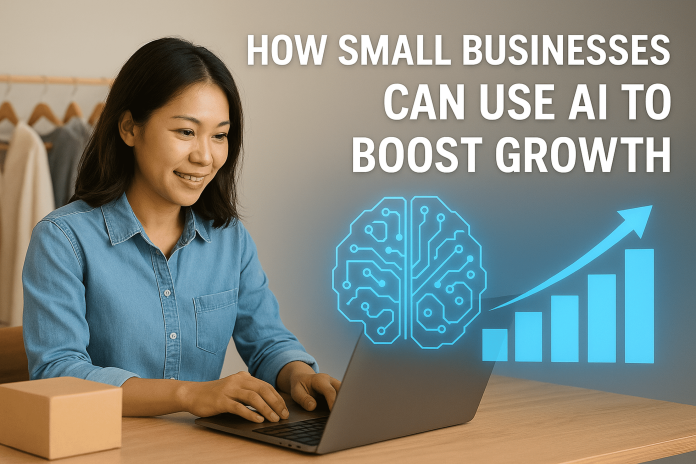In today’s fast-changing digital world, small businesses are finding new ways to compete with bigger brands. One of the most effective tools helping them do this is AI for small businesses. Artificial Intelligence is no longer just for tech giants; it has become an affordable, accessible, and powerful tool that can help small companies grow faster, work smarter, and understand their customers better.
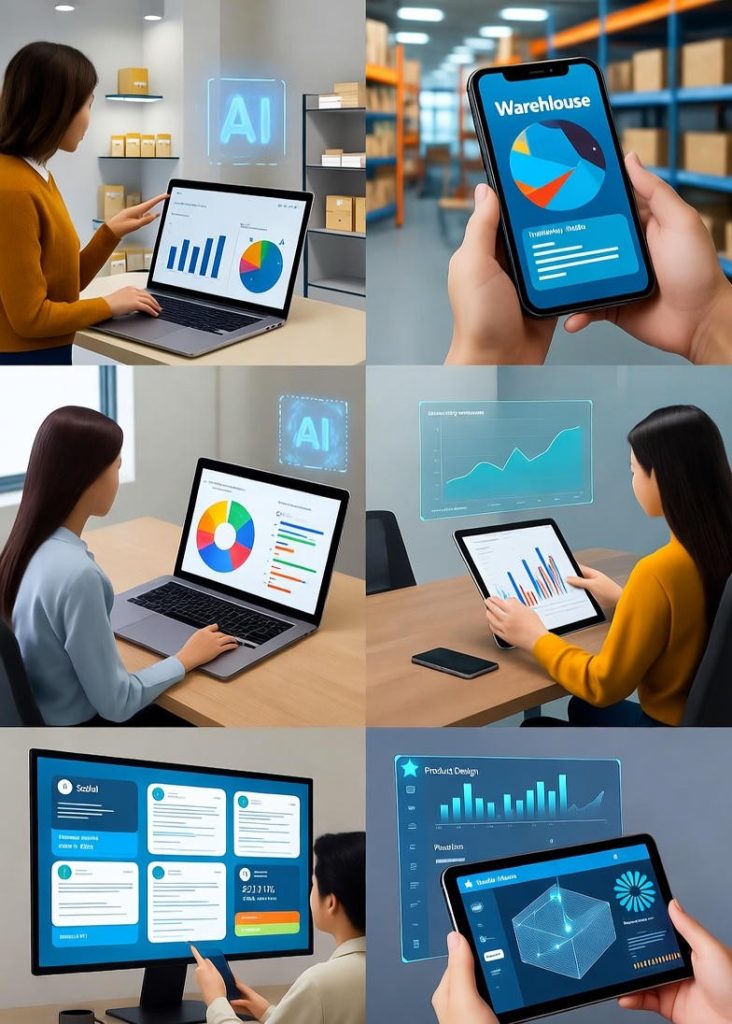
Understanding the Role of AI for Small Businesses
AI, or Artificial Intelligence, refers to the ability of machines to mimic human intelligence — such as learning, reasoning, and problem-solving. For small businesses, this means using technology to automate tasks, analyze data, and make better business decisions. From marketing and customer service to finance and inventory management, AI for small businesses can bring efficiency and innovation into every corner of an organization.
For example, a small bakery can use AI-powered analytics to predict which products sell best during certain times of the year. A local clothing store can use AI chatbots to handle customer questions online, even after business hours. The result is more productivity, less manual work, and happier customers.
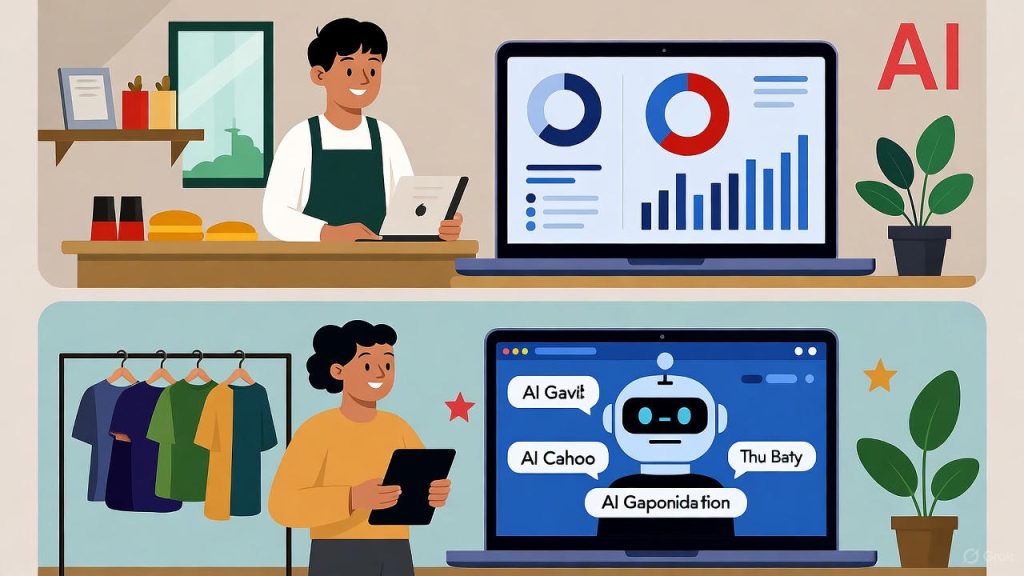
Why AI Is Important for Small Businesses
In the past, small business owners often struggled to keep up with fast-changing market trends due to limited resources. But now, AI for small businesses is leveling the playing field. AI can help in reducing costs, improving marketing accuracy, and optimizing customer experience.
It enables small businesses to access the same smart tools that large corporations use, but at a fraction of the cost. For instance, AI tools for data analysis can give insights into customer preferences, buying habits, and seasonal trends — information that was once only available to big enterprises.
AI also helps reduce human error, making operations smoother and more reliable. Whether it’s managing inventory, forecasting sales, or targeting potential customers, AI brings precision and consistency to business tasks.
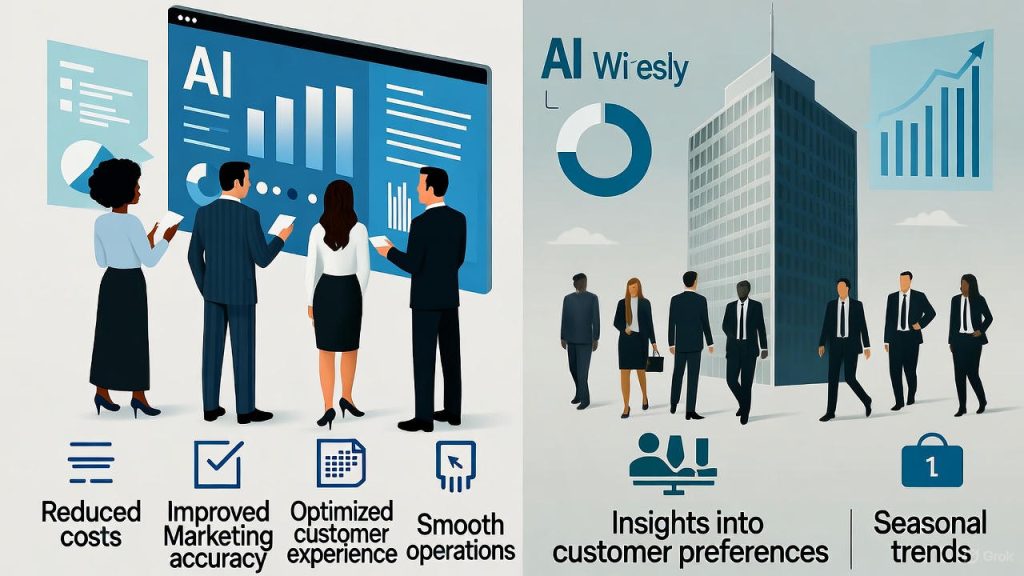
AI in Marketing and Customer Engagement
Marketing is one of the key areas where AI for small businesses has shown tremendous potential. Through AI, companies can now create personalized marketing campaigns, analyze customer behavior, and predict what products people might buy next.
Tools like ChatGPT, Jasper, and Writesonic can generate marketing content, social media posts, and even emails tailored to specific audiences. AI-driven email marketing platforms automatically segment customers based on their interests and buying patterns, ensuring each message feels personal and relevant.
AI also helps in social media management. Platforms such as Buffer and Hootsuite use AI to determine the best time to post content and measure engagement metrics. This allows small businesses to grow their audience and maintain consistent communication with customers without hiring large marketing teams.
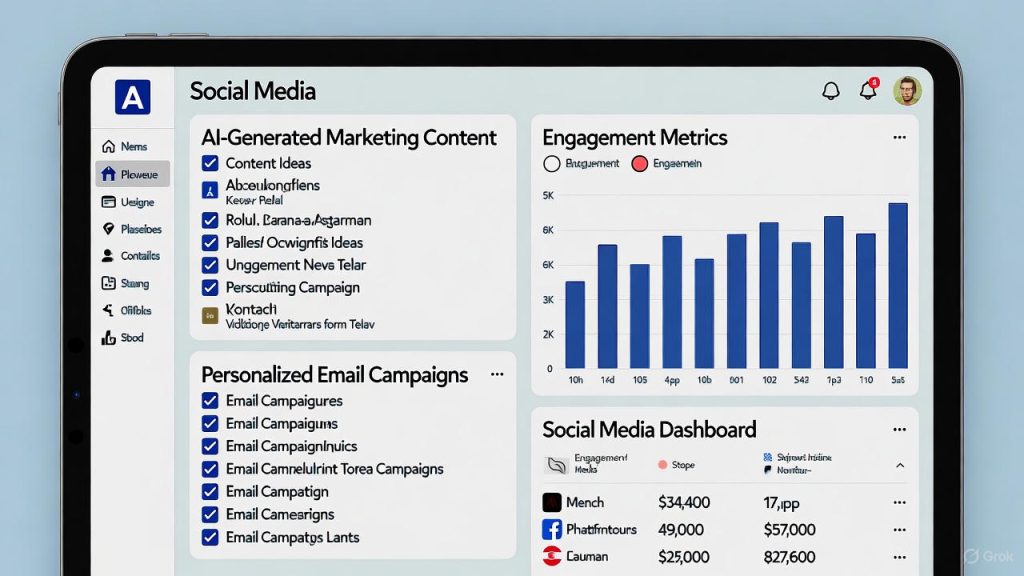
AI-Powered Customer Service
Customer service plays a major role in building loyalty and trust. AI chatbots have become a game-changer in this area. They are available 24/7 and can handle multiple customer queries at once. For a small business, this means customers get instant responses even outside office hours.
AI chatbots can answer common questions, help users navigate websites, and even suggest products based on browsing behavior. Over time, they learn from each interaction and improve their accuracy. This allows businesses to save time, reduce costs, and keep customers satisfied.
Moreover, AI can analyze customer feedback and detect patterns in reviews or messages. This helps identify problems early and allows the business to take corrective steps before issues become serious.
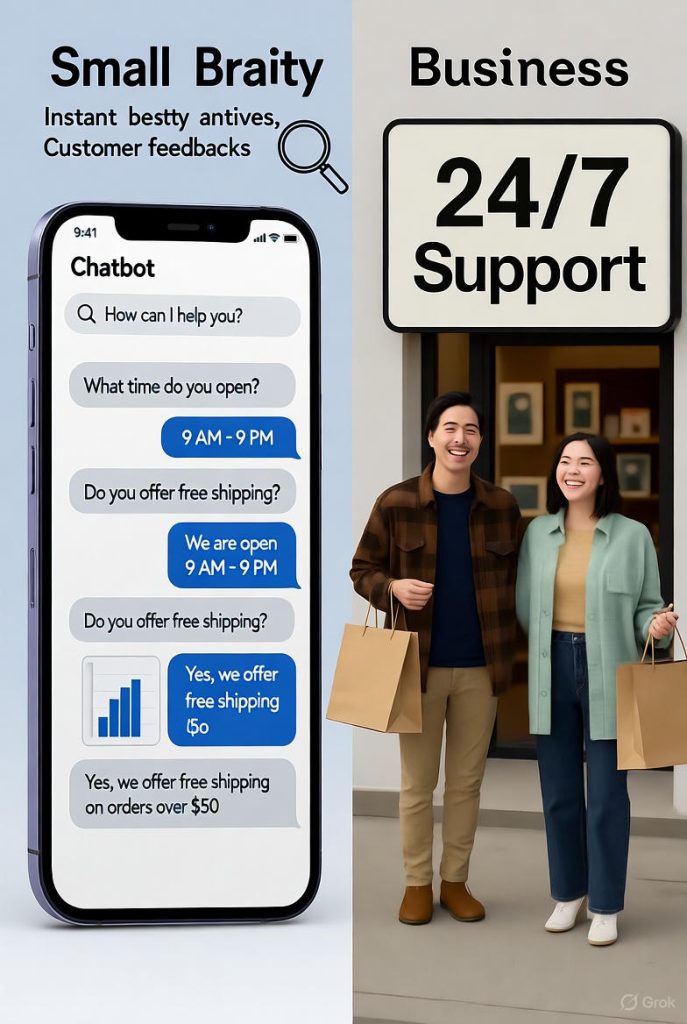
AI in Financial Management
Another major advantage of AI for small businesses lies in financial management. AI-based accounting tools can automatically track expenses, generate invoices, and predict cash flow. Software like QuickBooks and Xero now integrate AI to simplify bookkeeping and detect unusual spending patterns.
These systems also reduce the risk of human error. For example, they can alert the business owner if an invoice is overdue or if there is a sudden increase in expenses. AI also makes it easier to plan budgets and make accurate financial forecasts, helping business owners make data-driven decisions instead of relying solely on intuition.
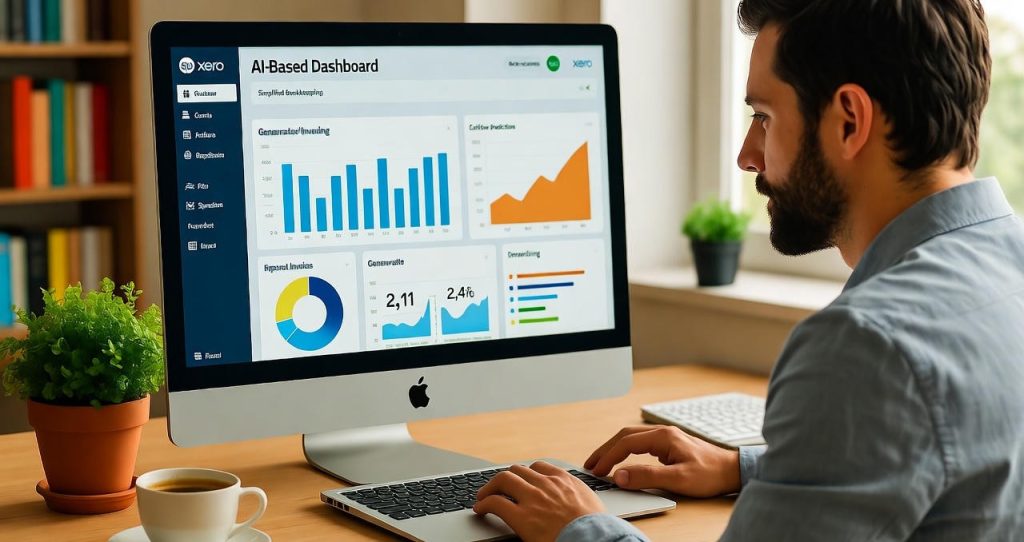
AI for Sales and Lead Generation
Sales are the lifeblood of any business, and AI for small businesses can make the sales process smarter. AI tools can identify high-potential leads, track customer journeys, and predict which prospects are most likely to convert.
For example, AI-powered Customer Relationship Management (CRM) systems such as Salesforce and HubSpot analyze sales data and customer interactions to recommend next steps for the sales team. This helps businesses prioritize their efforts on leads that are more likely to result in sales.
AI can also automate repetitive sales tasks like sending follow-up emails, scheduling calls, and updating records. This gives sales teams more time to focus on building relationships and closing deals.
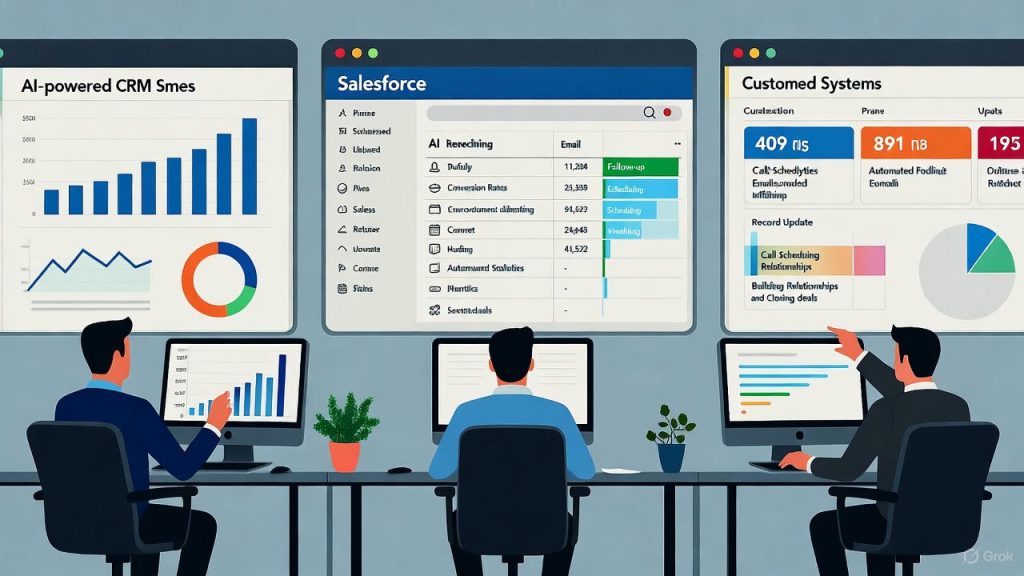
AI in Inventory and Supply Chain Management
Many small businesses struggle to manage inventory effectively. Overstocking or understocking can both harm profits. With AI for small businesses, this issue can be reduced. AI-driven inventory management systems use data from previous sales to predict future demand accurately.
For example, if a retail store uses AI, it can anticipate which products will sell more during the holiday season and which items may not perform well. This ensures better stock control, less waste, and improved cash flow.
AI also assists in managing supply chains. It can track shipments, optimize delivery routes, and even predict potential disruptions. This level of insight helps small businesses stay efficient and avoid delays or unexpected shortages.
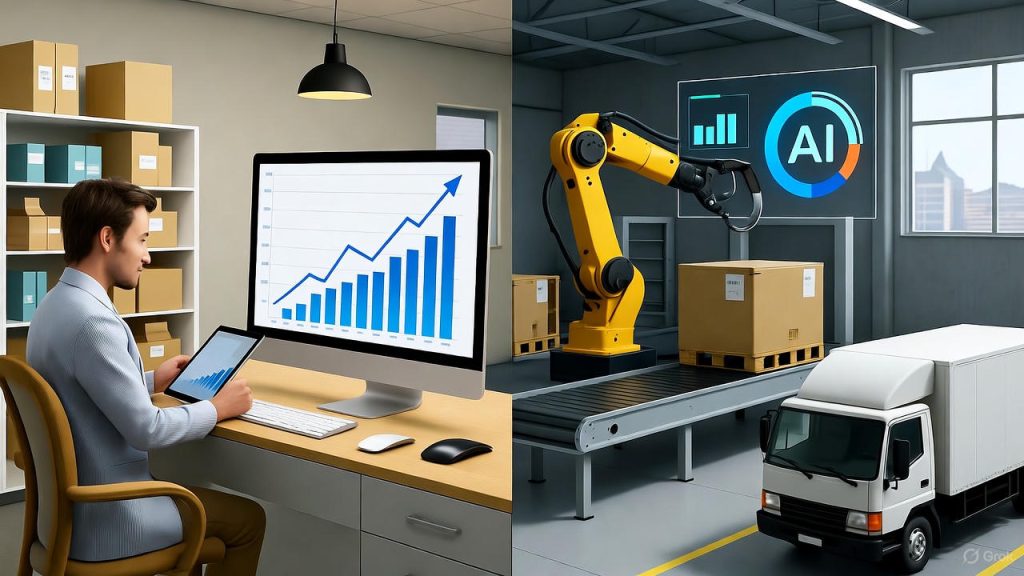
AI for Human Resource Management
Human resources may not be the first area people think of when it comes to AI, but it plays a vital role. AI for small businesses can simplify the hiring process by screening resumes, identifying qualified candidates, and even conducting initial interviews through chatbots.
AI tools can also monitor employee performance, track productivity, and suggest areas of improvement. For example, AI-based platforms can detect skill gaps and recommend training programs for employees. This ensures continuous growth and development within the organization.
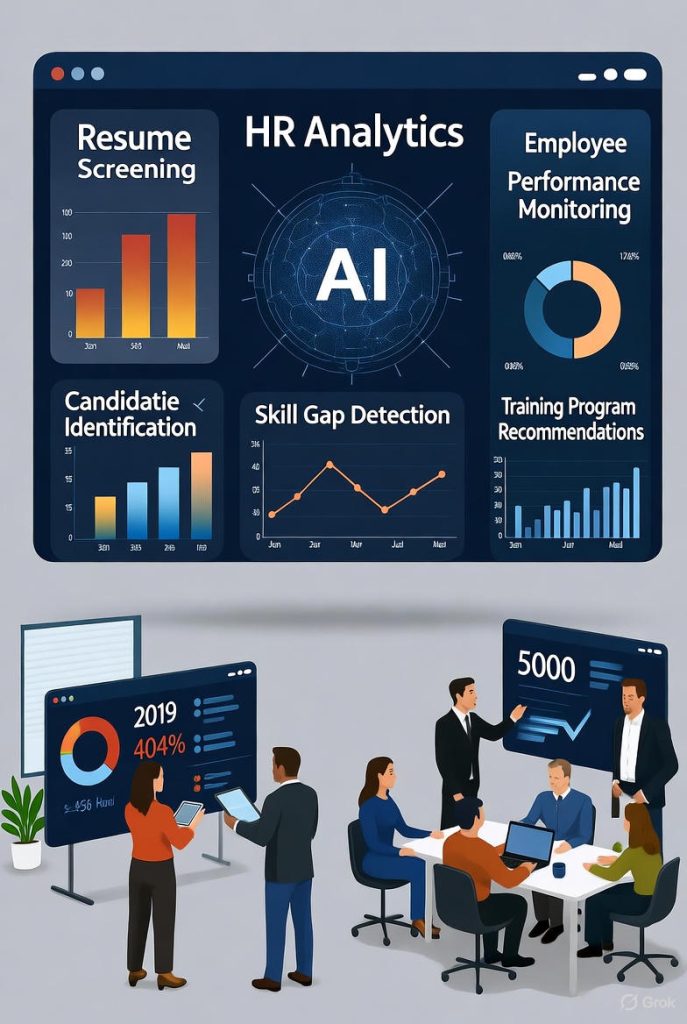
AI in Product Development
For businesses that create products, AI can help design, test, and refine them before they reach the market. Through predictive analytics, small businesses can understand what features customers value most. This helps them innovate faster and reduce trial-and-error costs.
AI-based design tools can generate prototypes quickly, saving time in the development phase. With AI for small businesses, even a small design firm can compete with larger companies by using smart automation and data insights.

Overcoming Challenges in Adopting AI
While the benefits are many, adopting AI for small businesses can also come with challenges. Some owners worry about costs, data security, or technical knowledge. However, most AI tools today are user-friendly and don’t require advanced expertise.
Cloud-based AI services have made it possible to start small. Businesses can subscribe to affordable monthly plans and scale up as they grow. Training employees to use these tools is another crucial step. When staff understand how AI works, they can use it more effectively to achieve business goals.
Data privacy is another concern. Businesses must ensure that any AI software they use complies with local and international data protection laws. Choosing reputable AI providers and maintaining transparent policies with customers builds trust and credibility.
Real-World Examples of AI for Small Businesses
Across the world, many small businesses have already transformed their operations using AI. A café in London uses AI to predict daily coffee demand, reducing waste. A small digital agency in India uses AI-based analytics to target clients more effectively. A fashion brand in the U.S. uses AI chatbots to provide real-time style suggestions to online shoppers.
These examples show that AI for small businesses is not just a trend — it’s a practical, result-driven solution for the modern business landscape.
The Future of AI for Small Businesses
The future looks even brighter as AI becomes more affordable and accessible. With the introduction of voice assistants, predictive analytics, and advanced chatbots, small businesses can expect to operate with greater precision and customer understanding.
In the coming years, AI for small businesses will move beyond automation and become a tool for innovation. It will help create new business models, design better customer experiences, and open up global opportunities. Those who embrace AI early will have a clear competitive edge.
Conclusion
Artificial Intelligence is no longer a distant concept. It is here, transforming the way small businesses work, sell, and grow. From improving marketing campaigns to managing finances and automating operations, AI for small businesses provides endless possibilities for progress.
The key lies in starting small, experimenting with simple AI tools, and expanding gradually. With the right strategy, small businesses can use AI not only to boost growth but to redefine what success means in the digital age.
FAQs About AI for Small Businesses
1. What is AI for small businesses and how does it work?
AI for small businesses refers to the use of Artificial Intelligence tools that automate daily operations, analyze data, and help in smarter decision-making. AI for small businesses works by learning from customer behavior, predicting trends, and improving efficiency through intelligent software systems.
2. Why is AI for small businesses becoming so popular?
AI for small businesses is gaining popularity because it helps owners save time, reduce costs, and improve productivity. With affordable tools now available, AI for small businesses allows even local shops and startups to compete with larger brands.
3. How can AI for small businesses improve customer service?
AI for small businesses can enhance customer service through chatbots, virtual assistants, and automated responses. These AI systems can handle queries instantly, ensuring that AI for small businesses keeps customers satisfied 24/7.
4. Can AI for small businesses help in marketing and sales?
Yes, AI for small businesses can personalize marketing campaigns, predict customer preferences, and identify potential buyers. Using AI for small businesses in marketing helps increase conversion rates and ensures targeted communication.
5. Is AI for small businesses expensive to implement?
AI for small businesses is more affordable than ever. Many AI tools offer monthly subscriptions, allowing small companies to pay as they grow. The cost of AI for small businesses depends on the tools used, but the return on investment is usually high.
6. What are the best tools of AI for small businesses?
Popular tools of AI for small businesses include ChatGPT for communication, Jasper for content creation, and QuickBooks AI for finance. These tools make AI for small businesses practical and easy to integrate into everyday operations.
7. Can AI for small businesses help in managing finances?
Absolutely. AI for small businesses can automatically track expenses, generate reports, and predict cash flow. By using AI for small businesses in finance, owners can make smarter decisions and avoid costly mistakes.
8. How does AI for small businesses affect employment?
AI for small businesses doesn’t replace people but assists them. Employees can focus on creative and strategic work while AI for small businesses handles repetitive tasks. This balance boosts productivity and job satisfaction.
9. What challenges do owners face while adopting AI for small businesses?
The main challenges in adopting AI for small businesses include lack of technical knowledge, data privacy concerns, and choosing the right tools. However, as AI for small businesses becomes simpler to use, these barriers are fading fast.
10. What is the future of AI for small businesses?
The future of AI for small businesses is incredibly promising. From predictive analytics to voice-enabled assistants, AI for small businesses will continue to drive innovation, improve customer experience, and expand global opportunities.

